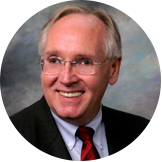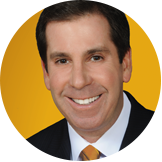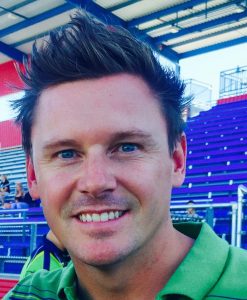Honorary National Campaign Chair, Retired Brigadier General Becky Halstead.

I was diagnosed with chronic fibromyalgia in 2004 and previous to that, I had taken very little pain medicine in my three decades of serving in the Army.
When I was diagnosed with chronic fibromyalgia, the solution from the military was to put me on prescription medication – for sleep, pain, stress and depression. It was interesting because when I took my first paper bag of prescriptions back home from the hospital, I started taking each one out and read the labels, side effects and everything.
I saw one that was for depression and was really taken back by that. I called the doctor and said, “I think you made a mistake. I think I got somebody’s else’s prescription.”
He responded, “Why?”
I responded, "Because you have one in here, and it was a controlled substance. You have one in here for depression.
And he answers, "Oh, yes. No, that’s for you.”
I said, “Well, I’m sorry, did I come off as being depressed?”
He said, “No, but you will be. Because you’ll be in so much pain, that you will become depressed.”
That was very eye-opening for me -- how in that time, my soldiers were dealing with pain and how they were being treated when they were going to go get medical care. It made the hair on the back of my neck stand up and put the antennas up because I could definitely foresee this being a problem, especially when this comes to addiction.
That was my introduction to prescriptions and then I spent the next four years serving in the military -- on again, off again with all of these prescriptions. I did not take any of the prescription medications while deployed to Iraq from 2005 to 2006, because I already had enough experience for the year. I was taking these prescriptions that resulted in a fog of war that was going on in my own head from taking them. I would get very tired, I didn’t have clarity.
There was no way I wanted to be in charge of a very large organization in combat and have any concern that I wasn’t alert, precise, clear and on my game.
Then, after about three years when I returned from Iraq, if one drug worked, they tried another one and added more.
By the end of it, I was on fifteen different prescriptions and I said time to retire. Time to figure this out and I submitted my resignation.
I submitted my retirement papers from the United States Army, which by the way, was very hard to do, very emotional for me because I loved serving my nation and was pretty good at it.
It was very difficult, but when I did retire, the first person I sought out was Dr. Carol Ann Malizia, doctor of chiropractic. And I have taken quite a journey since then with chiropractic care, whole food nutrition and supplements. Now, I take absolutely no prescriptions and that’s why I’m a huge advocate of choosing chiropractic first.
Being very smart about what I eat and my supplements -- and everything else -- this combination of helps me to live in a drug-free environment. That's what I try to share with other people so that they can enjoy quality of life even after they’ve been potentially diagnosed with a chronic disease or depression or whatever.
You do not have to be drug-induced to get through it.










